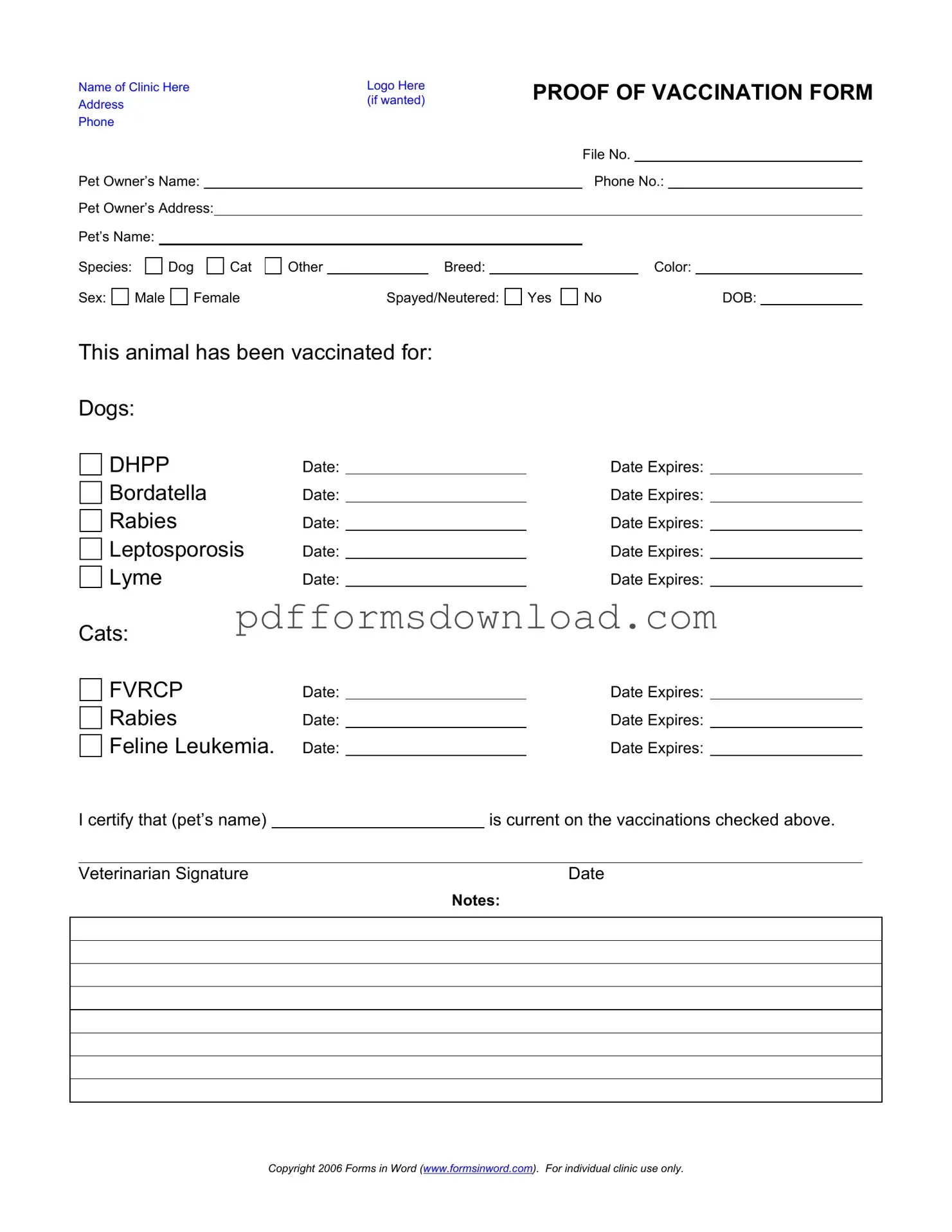What is the Proof of Vaccination Dog form?
The Proof of Vaccination Dog form is an official document that certifies your dog has received necessary vaccinations. This form includes details about the vaccinations your pet has received, such as DHPP, Bordetella, and Rabies, along with their expiration dates. It serves as proof for boarding facilities, dog parks, or any situation where vaccination status is required.
Why do I need this form for my dog?
This form is essential for ensuring the health and safety of your dog and others. Many places, such as doggy daycare centers, boarding facilities, and certain public parks, require proof of vaccinations to prevent the spread of diseases. Having this form readily available can make the process smoother and help you avoid any last-minute issues.
What information is included on the form?
The form includes the pet owner's name and contact information, the pet's name, species, breed, color, sex, and whether the pet is spayed or neutered. It also lists the vaccinations received, their dates, and expiration dates. Finally, a veterinarian's signature confirms the accuracy of the information provided.
How often do vaccinations need to be updated?
Vaccination schedules can vary based on the type of vaccine and local regulations. Generally, core vaccines, like Rabies, are required every one to three years, while others may require annual boosters. Always consult your veterinarian for the best schedule tailored to your dog's needs.
Can I obtain this form from any veterinarian?
Yes, you can obtain the Proof of Vaccination Dog form from any licensed veterinarian. However, it’s important that the form is filled out correctly and signed by the veterinarian who administered the vaccinations. This ensures that the document is valid and accepted by facilities that require proof of vaccination.
What should I do if I lose the form?
If you lose the Proof of Vaccination Dog form, don’t worry. You can contact your veterinarian’s office to request a replacement. They should have a record of your dog's vaccinations and can provide you with a new form. Keeping a digital copy can also help prevent future loss.
Is there a fee for obtaining this form?
Typically, there is no specific fee for the form itself, as it is part of the veterinary services provided during your pet's vaccination appointment. However, if you request a new copy after the initial visit, some clinics may charge a small administrative fee. Always check with your veterinarian’s office for their specific policies.

